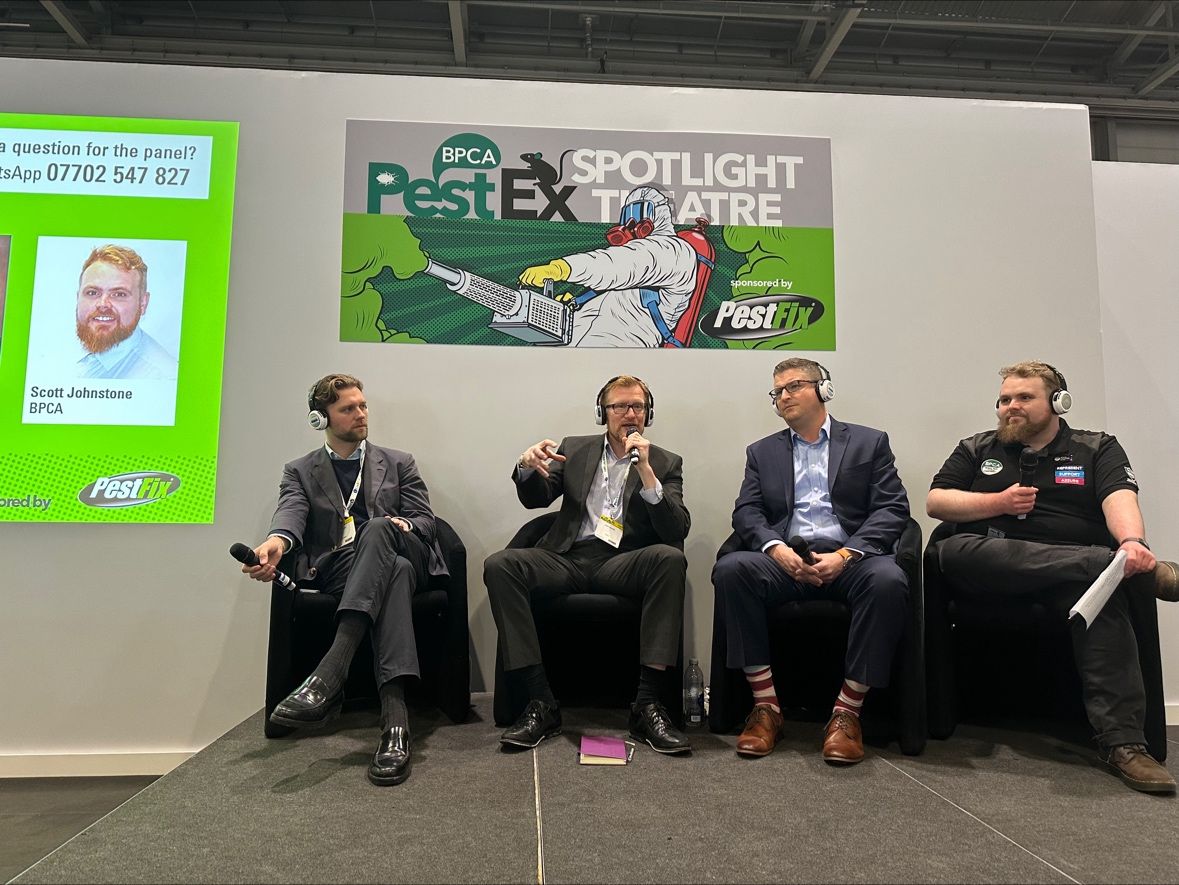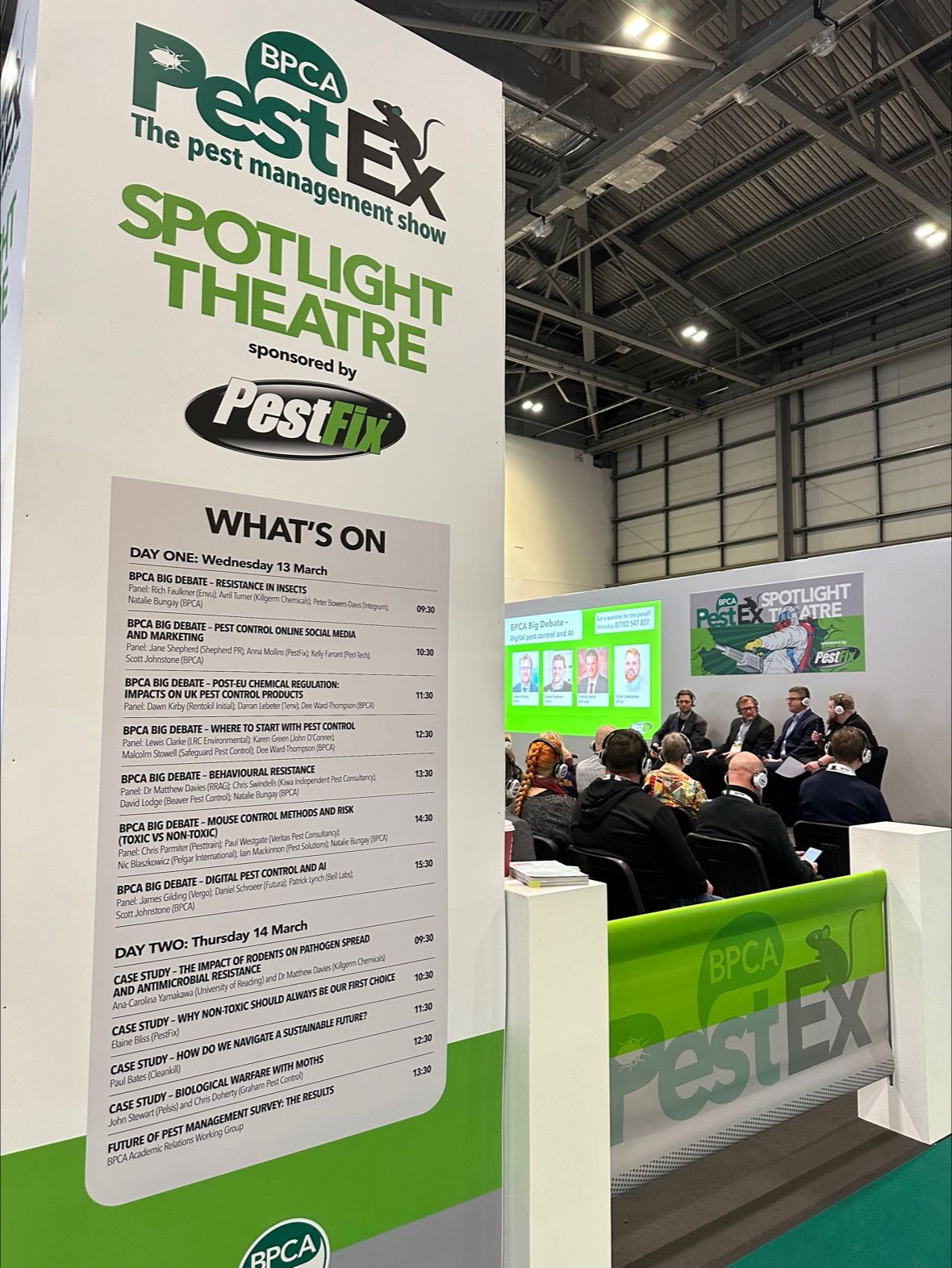Get a quote
or email usThank you for the quote request
We will aim to get back to you as soon as possible.
Email us
or get a quoteThank you for your email
We will aim to get back to you as soon as possible.
We will aim to get back to you as soon as possible.
We will aim to get back to you as soon as possible.
The Buzz
Get all of your UK pest control updates here at The Buzz!
By Steph Sordillo
In the ever-evolving world of pest management, staying ahead of the curve is crucial. That’s precisely what happened at the recent PestEx event, where industry professional gathered to discuss the latest trends and technologies shaping the future of pest control. Among the days highlights was the British Pest Control Association (BPCA) ‘Big Debate’ on digital pest control and artificial intelligence (AI), which featured a panel of guests from the industry.
Our CEO, James Gilding, was one of the guests to participate in this discussion alongside industry leaders Daniel Schroeer (Futura), Patrick Lynch (Bell Laboratories) and Scott Johnstone (BPCA).
The debate offered a unique platform to delve into the potential challenges of integrating digital tools and AI into pest management practices.
The Promise of Digital Pest Control and AI
Digital pest control and AI represent the frontier of innovation in our industry. These technologies promise to revolutionise how we detect, manage, and prevent pest infestations. From AI-powered detection systems that can identify pest species with incredible accuracy to digital monitoring tools that offer real-time insights into pest behaviour, the potential for enhancing efficiency and effectiveness is immense.
During the debate, James highlighted the importance of embracing these advancements to stay competitive. “In an age where technology is advancing at an unprecedented pace, integrating digital pest control and AI into our practices is not just an option; it’s a necessity.”
The Challenges Ahead
However, the transition to digital pest control and AI is not without its challenges. One of the key concerns raised during the debate was the need for robust data privacy and security measures. As pest control becomes more connected, protecting sensitive customer data becomes paramount.
Another challenge is the potential impact on employment within the industry. There’s a fear that automation could replace human jobs. Yet, as the panelists noted, the technology should not replace human jobs for pest professionals yet be a tool in their arsenal, allowing them more time to focus on doing what they do best – creating pest free environments. Although advancements in technology is also likely to create new opportunities for skilled professionals who can manage and interpret the data these digital tools provide.
Looking Forward
The consensus among the panelists was clear: the future of pest management will be shaped by digital innovation and AI. But this future also requires careful navigation, with an emphasis on ethical considerations, ongoing education, and collaboration across the industry.
As James aptly put it, “This is an exciting time for pest management. By embracing digital and AI technologies, we can not only improve our services but also contribute to the sustainability and well-being of our communities.”
The discussion at PestEx was just the beginning. It’s up to all of us in the pest management industry to take these insights and turn them into action.
By working together, we can ensure a future where pest control is more effective, efficient, and environmentally friendly than ever before.


Do you have a pest or property care problem?
We're here to help.